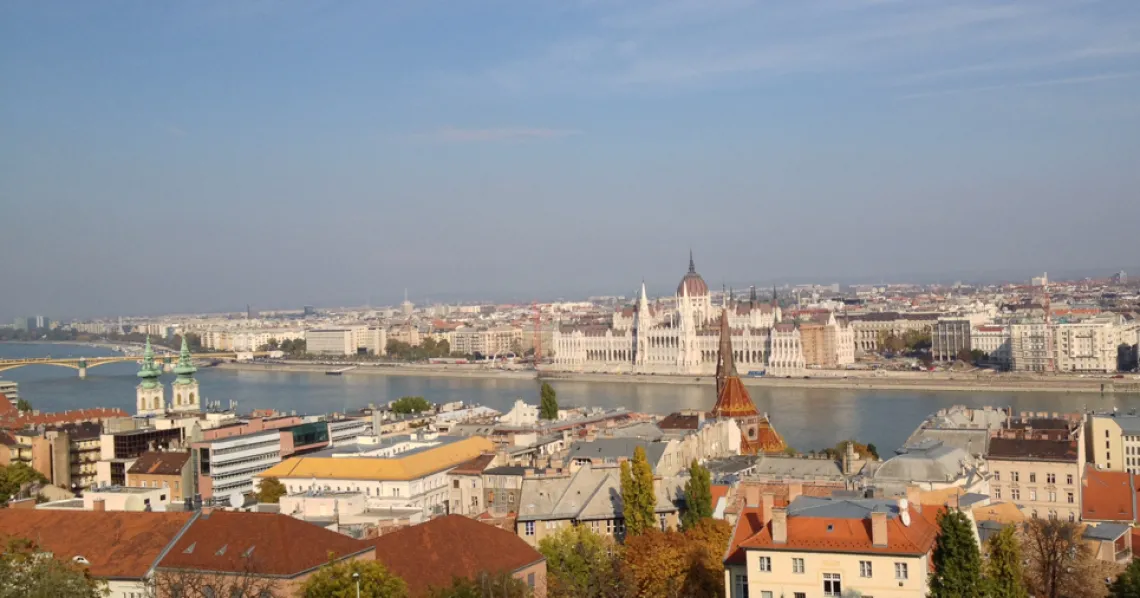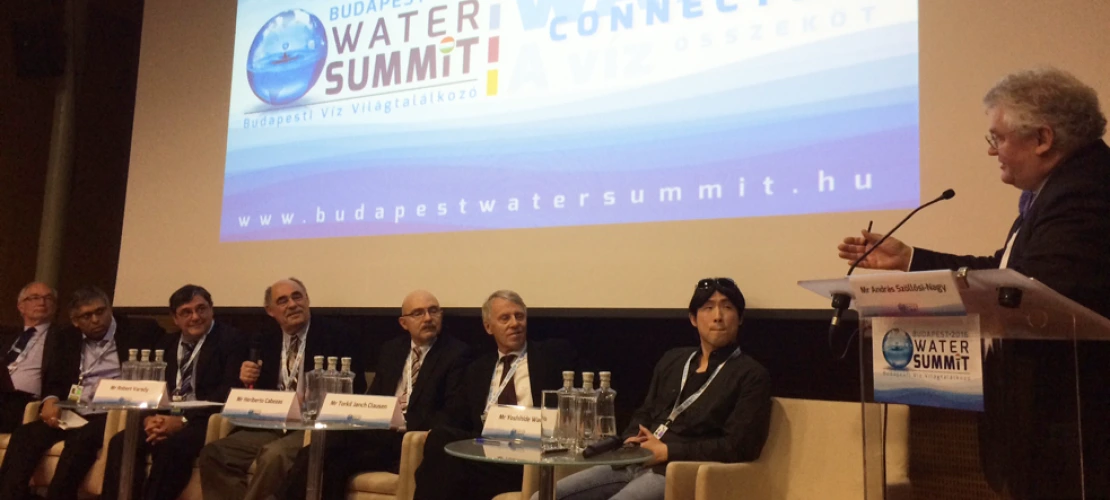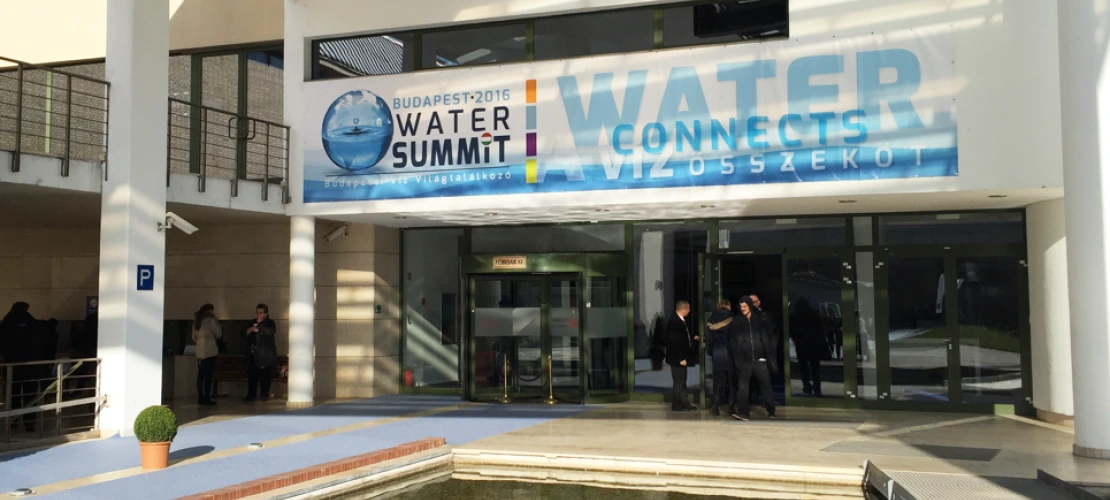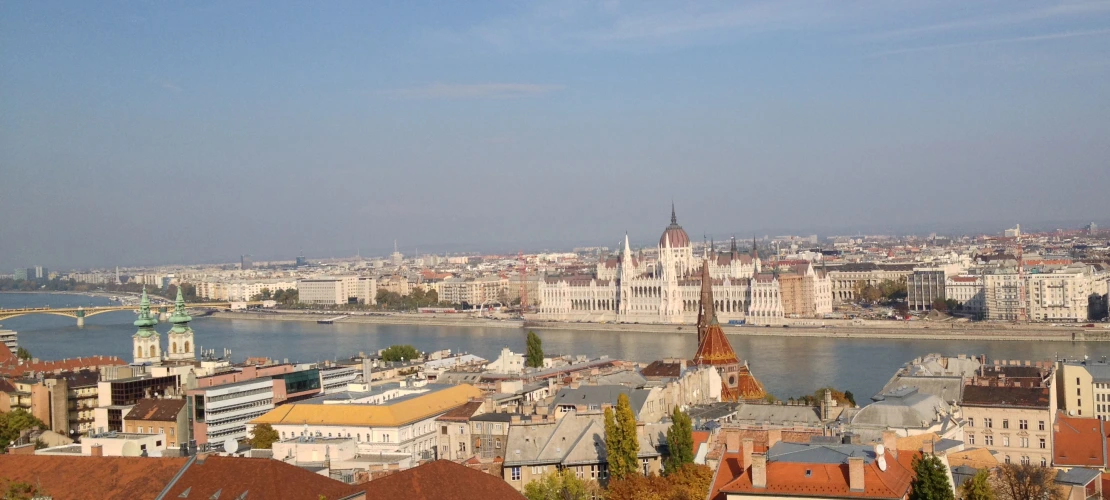The Budapest Water Summit 2016. One participant’s view: A triple threat to science and policy
One participant’s view: A triple threat to science and policy

The Second Triennial Budapest Water Summit organized by the Hungarian government was held on November 28-30, 2016. The overall theme of the program was “Water Connects.” The event was attended by more than 2200 participants from 117 countries.
The Summit adopted two documents: “The Budapest Water Summit 2016 Messages—Actions for the 2030 Agenda,” and “Policy Recommendations for the Implementation of the SDG (Sustainable Development Goal)-6 Areas”.
Robert Varady, current director of the Udall Center and director of IWSN’s Americas effort, was born in Budapest. He served on the International Program Committee of the Budapest Water Summit and participated as a speaker in the closing high-level panel for the Summit’s two-day Science and Technology Forum. IWSN External Advisory Board member, University of Arizona Prof. Sharon Megdal also attended the summit and participated in the groundwater session of the Science and Technology Forum.
The forum addressed the topic, “Turning the tide? How can scientific knowledge guide Sustainable Development Goals policy making at different scale?” At its closing session, Varady discussed recent political developments on the global stage and their likely impacts on the gap between science and policy. In particular, he cautioned that the combined forces of anti-globalization, reactionary populism, and aspects of social media (fake news, especially)—all of which question the legitimacy of science—would complicate bridging the gap.
Varady’s comments
To set the stage for my remarks, here are some of the notions I heard expressed in the course of the forum—none of them surprising for an event of this type: logic, rationality, scientific advancement, technological innovation, progressive thinking, cooperation, sustainability, shared common-pool resources, human well-being, equity.
But in view of major developments in the past few months, these values are suddenly under assault from a triple threat. In particular, this threat comes from the combined forces of populism, anti-globalization, and social media.
To elaborate:
- The recent fascination with and endorsement of populism in its most reactionary form carries with it strong currents of anti-intellectualism, mistrust of “elites” (including, prominently, scientists and “experts”), resurgences of raw nationalistic tendencies accompanied by appeals to race-based interests, and rejection of government expenditures for such public goods as human wellbeing and expansion of knowledge.
- Manifestations of anti-globalization are thinly-veiled expressions of pure self-interest over collective approaches, especially in regard to international and transboundary issues. At its core, rejection of trade alliances is a rejection of cooperation and an endorsement of retrenchment.
- The advent and enthusiastic adoption of social media bring many benefits to society. But they also bear a particularly pernicious aspect: the blurring of boundaries between what is real and what is invented and fanciful. Witness most notably the likely impact of fake news in the recent US elections. That blurring also leads to more belief in conspiracies, disregard for facts, disdain for logic, and ahistorical, non-contextual thinking. Most specifically, the social-media phenomenon helps relegate scientific knowledge to being just another point of view.
We heard earlier today about a relatively new construct that has caught on among both physical and social scientists, the Anthropocene. Last week a French journalist, Stéphane Foucart, writing in Le Monde, coined a new term, “The Trumpocene,” to describe the era we are entering.
What does all this mean for the theme of today’s session, which is, in brief, “How can scientific knowledge guide policymaking?”
Thirty years ago, when I first joined a policy studies center, the prevailing model was: “do science, then present the results to decision makers.” Simple: A to B.
Critiques to that approach yielded a new mode, which demanded that the dialectic:
- Be solicitous of public opinion and inclusive of public participation
- Be transparent
- Be sustainable (economically, environmentally, and institutionally),
- Encourage scientists to broaden their individual disciplinary interpretations of problems and solutions, and
- Avail itself of better means of communicating information
After some modest success in modifying the discourse, all this is now being seriously questioned and is threatened by the above three forces. It will take a global pendulum swing to return to the status quo ante. For now, the pendulum is swinging with momentum toward less rationality, greater self-interest, and less regard for the environment and water. In short, for now the gap between scientific knowledge and policymaking is growing, not shrinking.




